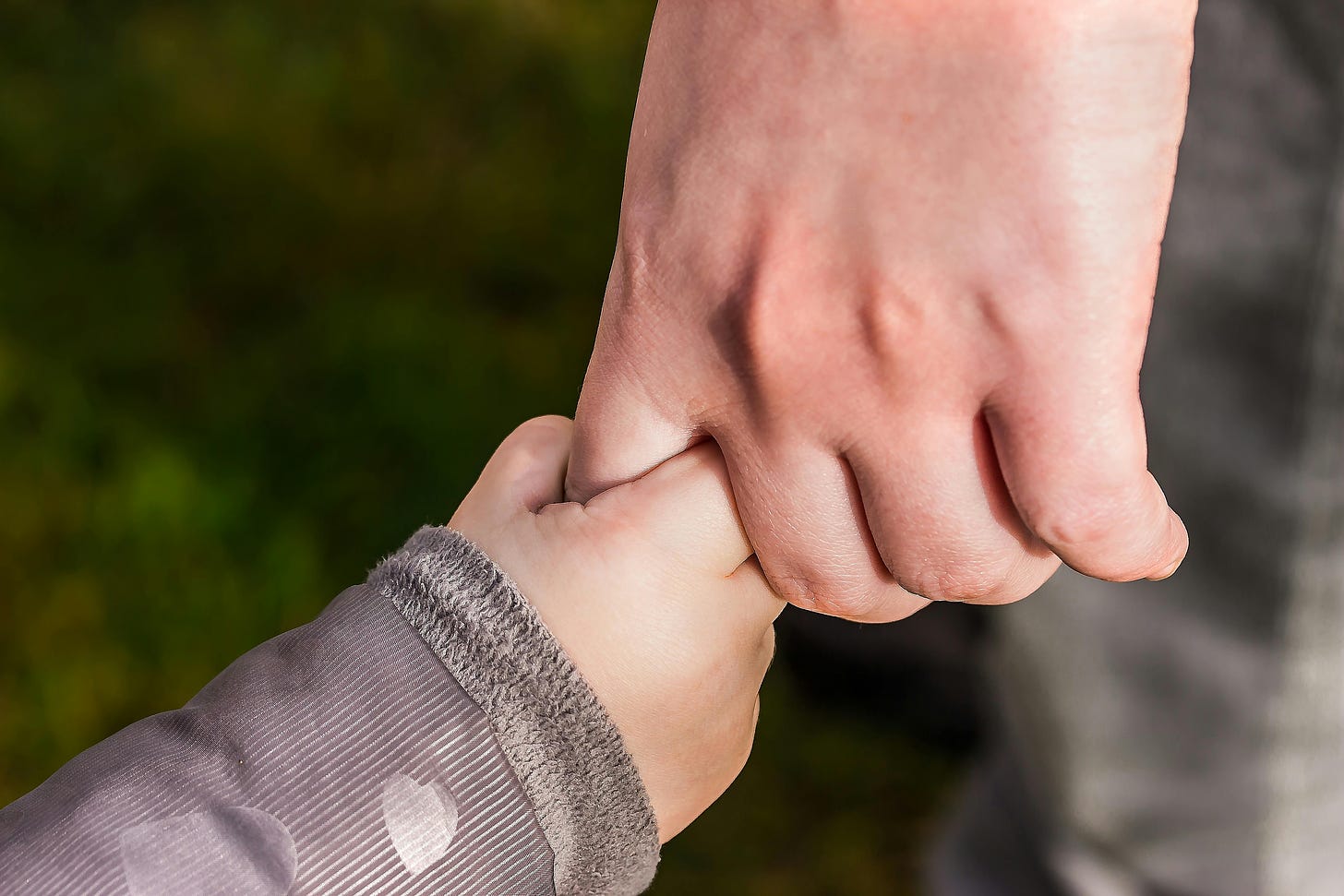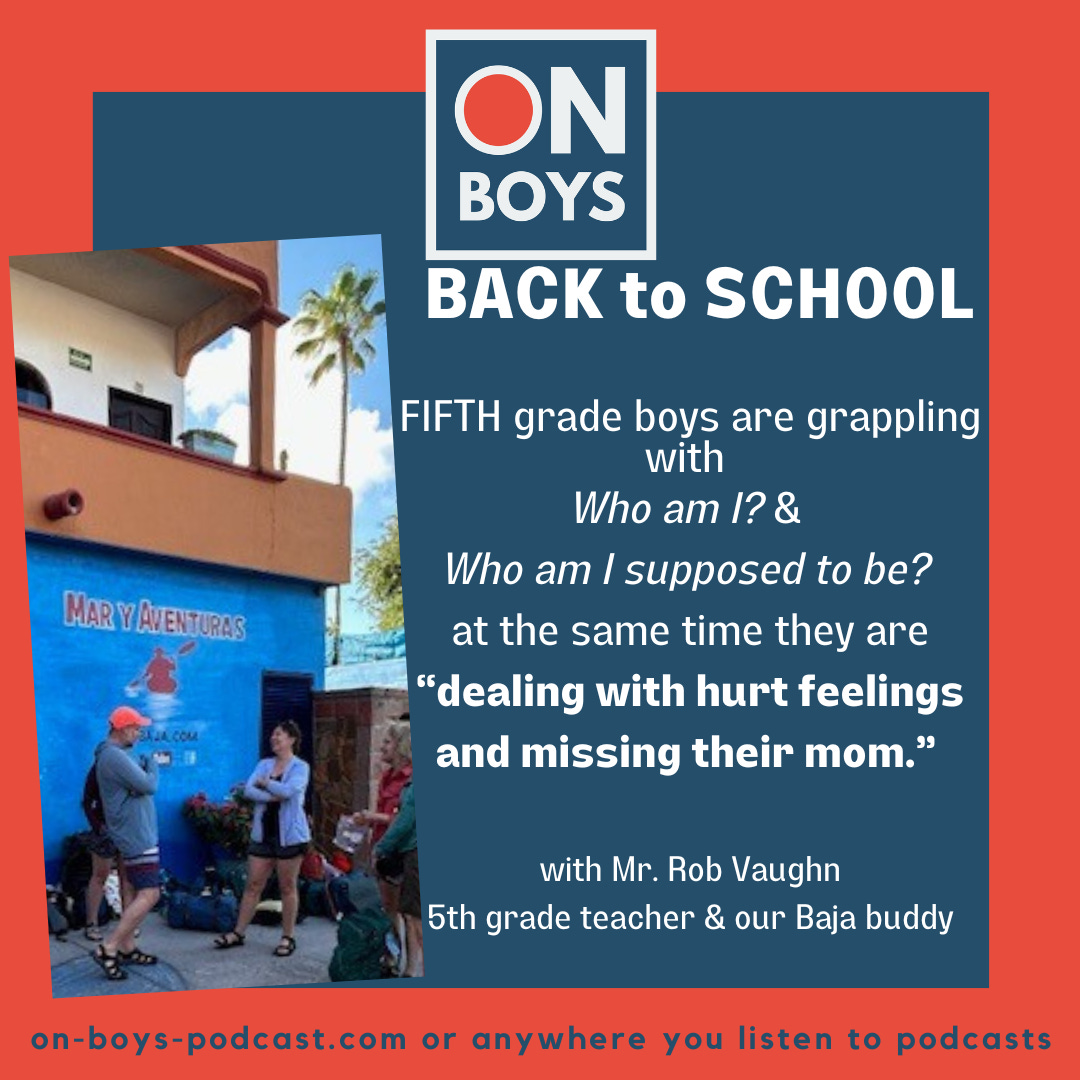Nothing like a headline telling you “we’ve been raising children wrong” for the past four decades.
I hate click-baity, everything-is-terrible, you’re-doing-it-all-wrong headlines for all the same reasons you probably do. And yet….the article itself is pretty good & super relevant to raising boys.
Trust beats constant wariness
The gist is this: The world itself is safer for children today than in years past. Violent crime is down significantly. “Stranger danger” is actually exceedingly rare, and your child’s odds of being killed by lightning are significantly greater than the chance they’ll be the abducted by a stranger (0.0065 percent for lightning vs. 0.00007 percent for abduction).
And yet, despite these positive trends, adults today tend to perceive the world as dangerous and therefore a) pass that fear on to their children and b) over-protect said children, which only further reinforces a. Our intentions of good, but none of this is really helping our children. In fact, there’s evidence to suggest it may be harming them.
From the article:
Scientists have …found that people who saw the world as safe were happier, more fulfilled, and more successful than their warier counterparts…[who] suffered from greater mental and physical illness, and even died younger than their more trusting counterparts.
As the author of the article notes, “by shielding our kids from short term, fictional dangers, we're steering them into more long term, real risk- of losing out on love, friendship, and community.”
Kids need to be taught that the world is a safe place…
Our current, cautious approach is not setting our kids up for a healthy future. And, it’s not warranted. Note:
Real people are much more trustworthy, generous, friendly, and open minded than we realize. The average person underestimates the average stranger, and science proves it.
Strangers — individuals we don’t yet know — are generally more likely to help rather than harm.
This is not the messaging today’s young adults have grown up with; it’s not the messaging many of today’s youth hear either. For at least two decades now, boys have been broadly painted as predators-in-waiting. That’s not helpful to boys, girls, or anyone else. (And we wonder why teens & young adults date less now than in years past?)
Boys have learned that girls may inaccurately claim “rape” or “assault.” Democrats imply that Republicans are evil; Republicans do the same to Democrats. Some religions do too —if you’re not us, well… you’re wrong, evil…
Our young people are suspicious of the world and everyone around them because that's what we’ve collectively taught them. No wonder they distance themselves from society at large. No wonder so many boys & young men spend more time online than in the offline world.
One reason our kids are isolated is because we’ve taught them, through our words and actions, that the world is dangerous. That other people are dangerous.
How different things might be if we taught our kids to see and assume good in others? I realize that sounds incredibly Pollyanna-ish in 2024. In today’s jaded world, it’s easy to jump to, Someone will take advantage of them! They’ll be used by their peers.
And yes, those things might happen. I can’t guarantee that they won’t. But they might also make a new friend because they take a chance and interact with someone they might otherwise avoid. They might discover that most people are willing to help them - and that many are very willing to share their interests and knowledge with young people. They may also begin to see themselves as people who are capable to navigating the world with the support of those around them.
…and they need to be taught critical thinking
All journalists are taught this maxim: Trust, but verify.
What if we adopted that maxim to our own lives & taught it to our children? It is completely reasonable (and smart!) to be careful & cautious in the age of AI, deep fakes, and catfishing. There are people who are not what they seem, especially online. But it is not healthy to assume that all others are out to get you.
You can teach your children that most people are good and willing to help them AND teach them not to share private information with people they don’t know. You can teach them how to evaluate and verify information. You can (& unfortunately, must) have difficult conversations with them about online sextortion and sexual assault.
Our job, as parents, educators, and caring adults, is to help our children live in the world. That certainly includes teaching our children to recognize & respond to potential danger, but it must also include teaching them to trust. Trust is necessary for love, for relationships, for communal projects and community building.
Not sure where to start? I’ve got some great posts about trust here.
Here’s to building boys!
Jennifer
IN THE NEWS
My Son Won’t Go to School, Take His Medication, or See a Professional. What Should I Do?
Highlights:
“Instead of focusing on all of his behaviors (getting to school, taking meds, seeing a therapist), ask yourself, ‘What is standing in the way of my son wanting to go to school, take meds or see a professional?’”
“You will need to make room for the possibility that your son may not be attending school (the way you thought) right away.”
“I know the panic parents feel when they watch their children miss school. But we have to deal with reality, and the reality is that your son is really suffering. His mental health comes before school.”
Should Parents of Boys Set Aside the Topic of Toxic Masculinity? This Author Thinks So
Highlights:
"’I've seen a lot online that there's really no place for a middle ground for a lot of young men and teenagers…" Instead, there's ‘different forms of toxicity.’" – comment from a 17-yr-old boy
"There's not really much empathy towards anyone” – observation of a 17-yr-old boy
This School Year, Turn Procrastination Into Activation
Highlights:
“My son knows what needs to be done, but it’s his execution that needs some work…Taking action, or task initiation, is an executive function skill that is lagging in people with ADHD.”
“Although my son had good intentions…like many ADHD kids and adults, he often gets derailed by more interesting, and at times productive, activities.”
“My job wasn’t to make my son feel guilty, but to remain calm and offer help if he needed it.”
As the Mom to a Neurodivergent Child, Seeing Gus Walz in the Spotlight Gives Me Courage
Highlights:
“I walk him to school, then I work and stare at my phone, waiting for a call from the school saying that John is too disruptive, that his unusual noises are too loud…”
“Even with a legal document that says he has the right to attend, my chest is always tight with the fear that he’ll face resentment from teachers, staff or other parents who think he is pulling too much focus away from their own kids.”
“I fight for inclusion because John needs it to survive.”
Something Shifted When Gus Walz Stood Up & Cheered & I Don’t Think It’s Going Away
Highlight:
“All over this country, every day, in every community, there are families quietly going about their lives with little fanfare and a whole lot of obstacles and even more love.”
Men are Having a Health Crisis. Why Aren’t We Paying Attention?
Highlights:
“The risk of dying from suicide is four times higher for boys and men than for their female peers. Since 2010, the suicide rate for men younger than 30 has risen by 40 percent”
“Each year, about 40,000 men are being lost to suicide, about the same as the number of women who die from breast cancer.”
“The public health crisis represented by male suicide is not on the public health agenda.”
“The value of gender-specific health-care research and policy has been proved by the work of women; it is now time to apply it to men.”
Teens are Losing Interest in School & Say They Hear About College “A Lot”
Highlights:
“Just over a third of Gen Z students without college plans believe that ‘at school, I get to do what I do best every day’”
68% of high-school respondents say they’ve heard “a lot” about college… Just 23% of high-schoolers say they’ve heard “a lot” about apprenticeships, certificates and vocational programs. Only 19% say they hear a lot about jobs that don’t require college.
Highlights:
“Feelings do not need to be the centerpiece of our existence, to be the only guide we follow, or the only measure of our mental health.”
“What does it say to our children if we and the world around them, treat them as if stress, anxiety, or sadness is in need of intervention?”
“We can work to remind our children that they are not one thing. They are a collection of many things, and actively changing and moving.”
“By trying to show up for our children, in every moment and around every emotional need, we may also be contributing to this fixation on pathology by indulging in co-rumination. Instead of saying, ‘We’ve talked for a while, let’s move on and make a plan for action,’ many of us sit in the swamp of our child’s feelings.”
ON BOYS Podcast
Back to School w a 5th Grade Teacher
On Building Boys
Pros & Cons of Video Games for Boys
…Unlike passive forms of entertainment such as television, video games require active engagement, decision-making, and problem-solving, which can stimulate the brain in various ways….




